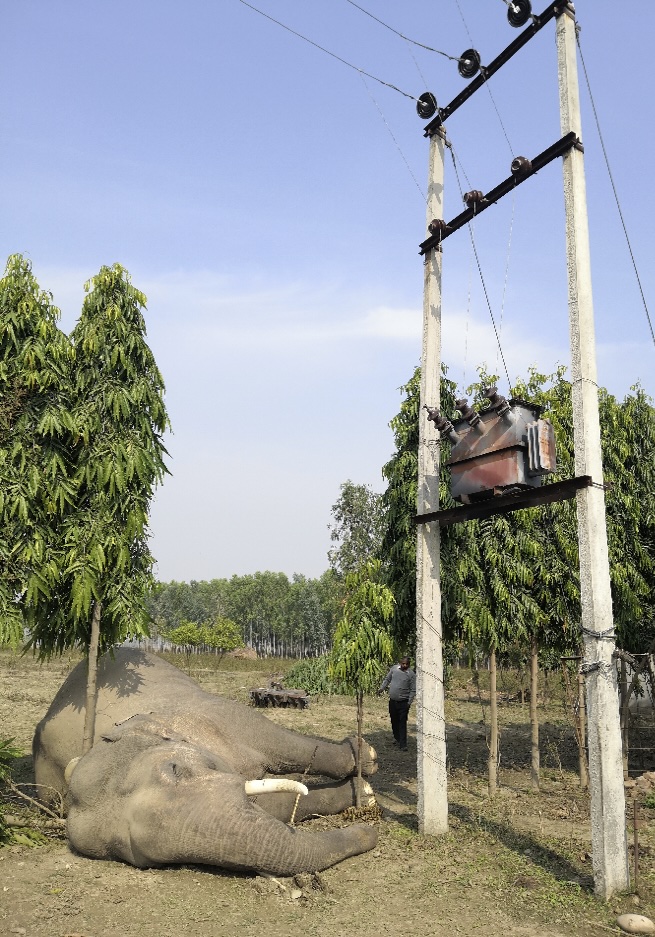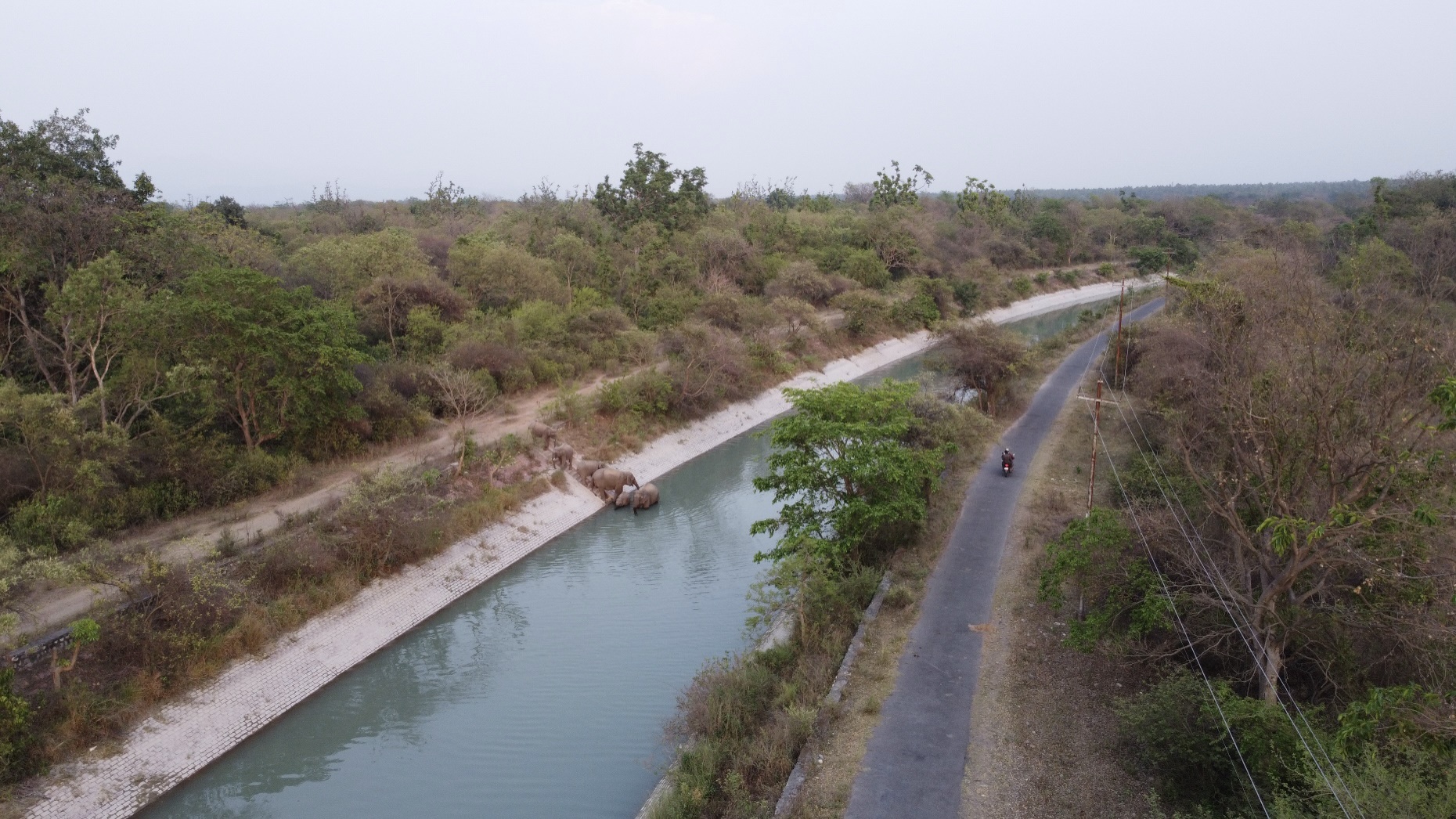Exploring the reality of India's Wildlife: A Journey of Conscious Travel and Conservation
We emphasise on bringing the realities of Indian Wildlife to you through our tours. These include, issues like habitat fragmentation, human animal conflict, hunting to name a few.
.jpg)
A tiger encounter near park gate - Jim Corbett National Park
Embarking on a journey through India's diverse landscapes offers travelers a chance to witness the splendor of its wildlife firsthand. However, beneath the surface of this natural beauty lies a reality of conservation challenges, including human-animal conflict, habitat fragmentation, deterioration, and illegal hunting. As travelers, it's crucial to embrace conscious tourism practices that not only allow us to experience India's wonders but also contribute to the preservation of its precious wildlife.

An electrocuted elephant - PC: Jayjit Das
Understanding the Realities of Tourism and Conservation:
India's burgeoning tourism industry brings both opportunities and challenges for wildlife conservation. Rapid urbanization, agricultural expansion, and infrastructure development often encroach upon natural habitats, leading to conflicts between humans and wildlife. Moreover, the demand for wildlife experiences can inadvertently fuel exploitation and contribute to habitat degradation and illegal hunting.

An All Male Group of elephants crossing road - PC:Jayjit Das
Exploring India's Wildlife Through Responsible Tours:
Conscious travelers can make a positive impact by choosing tours that prioritize wildlife conservation and community engagement. Our tours often include visits to protected areas, wildlife reserves, and community-led conservation initiatives, providing travelers with opportunities to observe wildlife in their natural habitats.
Addressing Conservation Challenges:
Human-animal conflict poses a significant threat to India's wildlife, but responsible tourism can play a role in mitigating these conflicts. By supporting initiatives that promote coexistence between humans and wildlife, such as investing in wildlife corridors and sustainable agriculture practices, travelers can contribute to fostering harmony between communities and the natural world.

A herd of elephants crossing a canal - PC: Jayjit Das
Habitat fragmentation and deterioration further exacerbate conservation challenges, but travelers can support efforts to combat these issues by participating in reforestation projects and advocating for the protection of key biodiversity hotspots. Additionally, raising awareness about the consequences of illegal hunting and poaching and supporting organizations dedicated to wildlife protection and law enforcement are essential steps in safeguarding India's iconic species.
Promoting Sustainable Tourism Practices:
Conscious travel in India involves adopting sustainable tourism practices that minimize environmental impact and maximize positive contributions to local communities. From choosing eco-friendly transportation options to supporting indigenous communities and artisans, travelers can ensure that their experiences leave a positive footprint on the environment and society.
Embarking on a wildlife tour in India offers travelers not only a chance to immerse themselves in the country's natural beauty but also an opportunity to contribute to its conservation. By embracing conscious travel practices and supporting initiatives that prioritize wildlife conservation and community engagement, travelers can become advocates for positive change and stewards of India's precious wildlife heritage. Let your journey through India's wildlife be a testament to the beauty of nature and the power of responsible tourism.